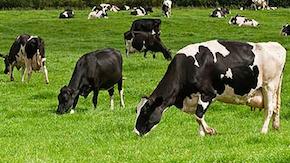Alison Prost, Maryland Executive Director of the Chesapeake Bay Foundation (CBF), issued a statement today following the release of an economic impact study by the BEACON consulting service at the Franklin P. Perdue School of Business at Salisbury University on the phosphorus management tool.
Ms. Prost’s statement is as follows:
“With this study completed, we can finally implement measures to improve water quality. The Chesapeake Bay Foundation favors a middle ground of the three options proposed by the study for implementing the regulations. The state should be flexible in the implementation, but it can delay no longer. There’s no other way to get the Maryland Eastern Shore back on track for clean water.
“We are going in the wrong direction on the Eastern Shore; phosphorous pollution is on the rise. Too much phosphorous pollutes the Choptank, Transquaking, Nanticoke, Sassafras, Manokin, Pocomoke, Wicomico and other rivers. This hurts watermen’s livelihood, closes swimming areas, and causes other harm.
“This study points to a solution: less poultry manure on fields that can’t use the phosphorus. The study estimates 228,000 tons of poultry manure will have to be transported to fields where it can be used. Current state budgets provided $170 million to the state agriculture industry to reduce pollution. The Maryland Department of Agriculture has signaled the state’s willingness to increase that subsidy in the short term to help pay for manure transport and other costs. Affected farmers can further reduce any increased costs by improving their practices.
“Investing in clean water pays off. A recent CBF study found that fully implementing the plan to finish the job of cleaning the Chesapeake Bay will produce $129.7 billion a year in economic benefits. The Perdue School of Business study confirms that reducing excess manure application will also provide economic benefits—in the range of $100 million, although these are widespread benefits, not just direct compensation to farmers.
“The Chesapeake Bay Foundation looks forward to working with the new administration, legislative leadership and the farm community to implement these much-needed clean water protections. Maryland has been a leader when it comes to protecting local rivers, creeks and the Chesapeake Bay. Citizens of Maryland have come to rely on and expect that leadership. Reducing pollution from manure is good for our communities and our economies—Maryland citizens are counting on it. “



Fletcher R. Hall says
about costs to the already overburdened farmers?
What about the plans for using chicken litter for energy? Is that program
goimg anywhere?Was there not a large state grant awarded to a California company to build a plant
for this purpose?
What aboutabout using chicken litter being used for diverse energy uses?
Are the plans proposed in this study the only way to “save the Chesapeak Bay?
Just wondering as I read a biased press release based on another report submitted by consultants.
What about the position of the new Governor who camapigned with doubt burdomsome over regulation?
Just wondering.
Gren Whitman says
Thank you for printing this. All that manure going into Eastern Shore creeks and rivers ain’t washin’ over Conowingo Dam during storms!